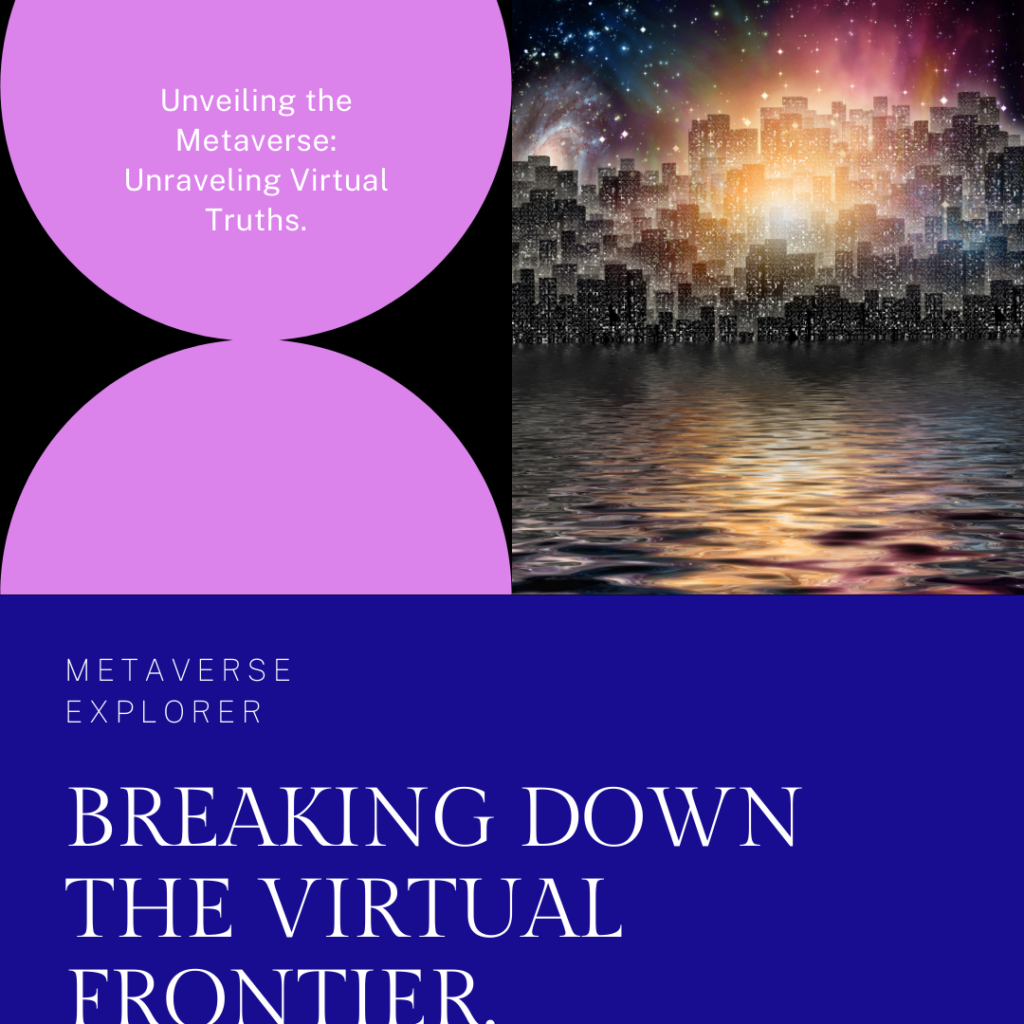Health
Benefits Of Hip Joint Replacement Surgery

Hip joint replacement surgery is a major but necessary step for many people suffering from bone or joint deterioration. While this surgery carries risks, it also offers several unique benefits. Here, this article will explore the top few benefits of hip joint replacement surgery so you can make an informed decision.
Pain Relief
Pain relief is perhaps the greatest benefit of hip joint replacement surgery. For those who suffer from advanced hip joint degeneration, chronic pain can be debilitating and impede everyday activities such as walking, standing, bending, and even sleeping. Hip replacement surgery removes the damaged tissue from the joint, allowing the body to use healthy, natural joint tissue instead. This can provide significant pain relief, allowing people to return to their normal activities and lead a life free from pain.
Decreased Disability
Hip joint replacement surgery can also help to decrease disability. By reducing pain, providing better mobility, and increasing energetic capacity, hip replacement can help people to move around like normal and feel less limited by their condition. This is especially important for those suffering from joint-related disabilities, as it can help them to reclaim their independence and enjoy a higher quality of life.
Improved Mobility
As well as relieving pain and disability, hip joint replacement can also help to improve overall mobility. While the body’s natural joint tissue can sometimes become stiff and inflexible due to damage, replacement surgery can give people back the range of motion and flexibility they need to perform everyday activities with ease.
Improved Quality of Life
One of the most important benefits of hip joint replacement surgery is an improved quality of life. By eliminating pain and disability, providing improved mobility, and increasing individual capacity, this surgery can help people to reclaim their lives. In addition, increased energy and increased ability to perform everyday tasks can add years to their overall lifespan.
Decreased Risk of Infection
Hip joint replacement surgery can also help to decrease the risk of infection. As with any surgery, the invasive nature of hip joint replacement can cause serious infection risk. However, thanks to the use of advanced implants and sterilized surgical equipment, the risk of infection can be greatly lowered. This is a key factor in many people’s decisions to proceed with the surgery.
Stability of New Joint
The new joint provided by hip replacement surgery is also far more stable than the previous joint. Damaged joint tissue is removed and replaced with a new implant, which is designed to last for decades. This implant is made of durable and corrosion-resistant materials, allowing it to absorb impact and resist potential damage.
Improved Balance
Another benefit of hip joint replacement surgery is improved balance. Damaged joint tissue can cause pain, inflammation, and imbalance, which can result in difficulty performing basic tasks. The improved joint provided by hip joint replacement can improve balance and coordination, allowing people to move around with greater stability and concentration.
Increased Longevity
In addition to the other benefits, hip joint replacement surgery can also help to extend life expectancy. By providing improved joint stability, increased mobility, and decreased infection risk, this surgery can add years to a person’s life. This can be especially beneficial for those suffering from joint-related issues.
Lower Risk of Hip Fracture
Finally, hip joint replacement can also help to reduce the risk of hip fractures. Weak and damaged joint tissue can place an individual at an increased risk for a hip fracture, as the weakened joint is unable to absorb the impact of a fall or other incident. The new joint provided by hip joint replacement surgery can reduce this risk and give people greater peace of mind.
Improved Posture
The last benefit of hip joint replacement surgery is improved posture. Bold and weak joint tissue can cause poor posture, which can lead to chronic pain, fatigue, and even back problems. Hip replacement surgery can eliminate joint weakness and improve posture, allowing individuals to move around with greater comfort and confidence.
Tips For Selecting The Best Hip Joint Replacement Surgery
When you or your loved one is considering hip joint replacement surgery, you must do your research and find the best possible surgeon to perform the surgery. Researching more than one surgeon ensures that you are confident that the one you decide upon is the best possible option. This means studying the surgeon’s credentials, qualifications, and even subjective details such as personality to ensure that you have a good rapport with them.
Check the Surgeon’s Certifications and Qualifications
Before selecting a surgeon to perform your hip joint replacement surgery, it is important to check their credentials and verify their qualifications. Ask questions such as how long they have been practising, what kind of education and/or fellowships they have completed, and who their former employers have been. It is also important to make sure that they are in good standing with their respective state medical boards and the licensing authorities.
Know What Identifies as the Best Surgery
When selecting a hip replacement hospital, it is essential to research and understands what makes each surgery unique. Factors to consider include the type of surgery, the surgeon’s experience and specialization, the patient’s medical history, the treatment plan, and the potential benefits and risks associated with the procedure. Research and ask questions to ensure that you are making an informed decision and choosing the best option.
Consider Doctor-Patient Relationship
When considering hip joint replacement surgery, it is important to choose a surgeon that you feel comfortable with and can trust. The doctor-patient relationship is important for any medical procedure, and should not be overlooked when researching the best hip joint replacement surgery candidates. Make sure to consider the character of the surgeon and the relationship you can build with them to ensure a positive experience.
Understand Medical Services You Need
It is important to understand what services you will need for hip joint replacement surgery. Make sure to research and ask questions to ensure that the surgeon you are considering offers the full range of medical services that you require. This includes the pre-and post-operative care, the use of technology, and the type of anaesthesia that will be used.
Know the Cost of Surgery
When researching hip joint replacement surgery, make sure to ask questions and research the expected financial costs associated with the surgery. This includes costs associated with the surgeon, hospital fees, medical device fees, and expected recovery time. Knowing the estimated costs can help you to make an informed decision and plan for the appropriate insurance and/or payment options.
Stay Updated on Technology
In most areas of medicine, the use of technology has greatly improved the surgery process and outcomes. Make sure to stay updated on the latest technology and advancements in the hip joint replacement surgery that may be used in the procedure. Ask questions such as if the surgeon prefers to use robotic-assisted surgical tools and/or minimally invasive techniques such as arthroscopy.
Choose the Right Type of Surgery
When selecting the best hip joint replacement surgery, make sure to research the different types available to ensure that you choose the right one for your medical needs. Different types of surgery include total hip replacements, partial hip replacements, and resurfacing hip replacements. Research the type of surgery and the differences between them to ensure you are selecting the one with the best outcome potential.
Consider Doctors Reviews
Researching doctor’s reviews is an important part of selecting the best hip joint replacement surgery. This can include researching online reviews and medical forums, as well as speaking to former and current patients of the surgeons you have narrowed down your search to. Hearing the stories and experiences of other patients is invaluable when considering surgery.
Take Your Time
Finally, it is important to take your time in selecting the best hip joint replacement surgery. Do not feel rushed and instead, weigh the risks and benefits of each surgeon and procedure to ensure that you are making the best possible decision for yourself or your loved one.
Conclusion
Hip joint replacement surgery can provide people with significant benefits that can improve their quality of life. From pain relief to improved mobility and posture, this surgery can help individuals to reclaim their independence and enjoy a life free from chronic pain and discomfort.
Artifiсiаl Intelligenсe
Metaverse Unveiled: Breaking Down the Virtual Frontier with Raw Power and Unraveling Truths

Metaverse Unveiled: Breaking Down the Virtual Frontier with Raw Power and Unraveling Truths
The Metaverse Decoded: Understanding the Basics
Unleashing the Power Within: Metaverse’s Impact on Industries
Navigating the Virtual Landscape: Tools and Platforms
Metaverse Realities: Debunking Myths and Misconceptions
The Human Touch: Social Dynamics in the Metaverse
Metaverse Security: Navigating the Digital Wild West
Metaverse and Economy: Redefining Transactions
Metaverse and Education: A Classroom Without Borders
Future Horizons: What Lies Ahead for the Metaverse?
As we wrap up our journey, let’s peer into the future. What innovations and developments can we expect in the ever-evolving landscape of the Metaverse? Join us in envisioning the possibilities that lie ahead.
Conclusion: Embracing the Metaverse Revolution
FAQs: Unlocking Further Insights
Is the Metaverse only for gamers?
No, the Metaverse spans various industries, offering diverse experiences beyond gaming.
How secure is the Metaverse?
Security challenges exist, but proper precautions can ensure a safe experience in the virtual realm.
Can anyone access the Metaverse?
Yes, with the right tools and platforms, the Metaverse is accessible to a broad audience.
Are virtual currencies reliable in the Metaverse?
Virtual currencies play a significant role, offering secure and efficient transactions within the digital landscape.
What role does education play in the Metaverse?
Education in the Metaverse goes beyond traditional boundaries, offering innovative and interactive learning experiences.
By delving into each aspect of the Metaverse, we aim to equip you with the knowledge and insights needed to navigate this dynamic digital frontier with confidence and curiosity. Embrace the Metaverse revolution—your journey starts now.
Health
Effortless Healthy Meal Prep Recipes: A Busy Professional’s Guide to Nutritious Dining

Healthy Meal Prep Recipes for Busy Professionals: Your Ultimate Guide to Quick and Nutritious Meals
Why Healthy Meal Prep Matters
In the chaos of daily life, it’s easy to succumb to the convenience of fast food or pre-packaged meals. However, the long-term consequences on health can be significant.
Poor nutrition not only affects energy levels but also contributes to stress, fatigue, and a decline in overall health.
By investing a little time in meal prep, you can take control of your diet, ensuring you nourish your body with the right nutrients.
Getting Started: Essential Meal Prep Tools
Before diving into the recipes, let’s equip your kitchen with the essential tools for efficient meal prep.
A sharp knife, cutting board, airtight containers, and a reliable set of measuring cups and spoons are your kitchen allies. Investing in a quality slow cooker or instant pot can also save you valuable time in the long run.
Breakfast Boost: Quick and Energizing Morning Recipes
Overnight Oats with Berries and Almonds

Start your day right with a powerhouse of nutrients. Combine rolled oats, almond milk, chia seeds, and a mix of your favorite berries in a jar. Leave it in the fridge overnight, and voilà – a nutritious and delicious breakfast awaits you in the morning.
Veggie-Packed Breakfast Burritos

Veggie-Packed Breakfast Burritos
Prepare a batch of veggie-loaded burritos on the weekend and freeze them for a grab-and-go breakfast during the week. Scrambled eggs, black beans, sautéed veggies, and a sprinkle of cheese wrapped in a whole-grain tortilla – a satisfying start to your day.
Lunchtime Solutions: Quick and Wholesome Midday Meals
Quinoa Salad with Roasted Vegetables

Quinoa Salad with Roasted Vegetables
Quinoa is a versatile and protein-packed grain that forms the base of this vibrant salad. Roast your favorite vegetables, toss them with cooked quinoa, and drizzle with a zesty vinaigrette. Divide into containers for a week’s worth of nutritious lunches.
Ingredients:
For the Salad:
- 1 cup quinoa, rinsed
- 2 cups water or vegetable broth
- 1 large sweet potato, peeled and diced
- 1 red bell pepper, diced
- 1 zucchini, diced
- 1 red onion, thinly sliced
- 2 tablespoons olive oil
- Salt and pepper to taste
- 1 cup cherry tomatoes, halved
- 1/2 cup crumbled feta cheese (optional)
For the Dressing:
- 1/4 cup olive oil
- 2 tablespoons balsamic vinegar
- 1 clove garlic, minced
- 1 teaspoon Dijon mustard
- Salt and pepper to taste
- 1 tablespoon fresh parsley, chopped (optional)
Instructions:
- Preheat Oven: Preheat your oven to 400°F (200°C).
- Roast Vegetables: In a large bowl, toss the sweet potato, red bell pepper, zucchini, and red onion with olive oil, salt, and pepper. Spread the vegetables in a single layer on a baking sheet. Roast in the preheated oven for 25-30 minutes or until the vegetables are tender and slightly browned, stirring halfway through.
- Cook Quinoa: While the vegetables are roasting, rinse the quinoa under cold water. In a medium saucepan, combine the quinoa and water or vegetable broth. Bring to a boil, then reduce the heat to low, cover, and simmer for 15-20 minutes, or until the quinoa is cooked and the liquid is absorbed. Fluff the quinoa with a fork and let it cool.
- Prepare Dressing: In a small bowl, whisk together the olive oil, balsamic vinegar, minced garlic, Dijon mustard, salt, and pepper. Add chopped parsley if desired.
- Assemble Salad: In a large bowl, combine the cooked quinoa, roasted vegetables, cherry tomatoes, and feta cheese (if using). Pour the dressing over the salad and toss gently to combine.
- Serve: Taste and adjust the seasoning if needed. Serve the quinoa salad at room temperature or chilled.
This Quinoa Salad with Roasted Vegetables is not only delicious but also packed with nutrients. Feel free to customize it by adding your favorite herbs, nuts, or additional vegetables. Enjoy!
Chicken and Broccoli Stir-Fry

Chicken and Broccoli Stir-Fry
Keep it simple yet flavorful with a chicken and broccoli stir-fry. Marinate chicken strips in a soy-ginger sauce, stir-fry with broccoli and other veggies, and pack into containers with brown rice for a quick and satisfying midday meal.
Dinner Delights: Wholesome Dinners in a Flash
One-Pan Baked Salmon with Asparagus

One-Pan Baked Salmon with Asparagus
Simplify your evenings with a one-pan wonder. Place salmon fillets on a baking sheet, surround them with asparagus spears, drizzle with olive oil, and season to perfection. Pop it in the oven for a hassle-free, nutritious dinner.
Turkey and Sweet Potato Chili

Turkey and Sweet Potato Chili
Prepare a hearty batch of turkey and sweet potato chili over the weekend, and enjoy it throughout the week. Packed with protein and fiber, this comforting dish is a perfect way to end a busy day.
Smart Snacking: Quick Bites to Keep You Energized
Greek Yogurt Parfait with Granola and Berries

Greek Yogurt Parfait with Granola and Berries
For a satisfying snack, layer Greek yogurt with granola and a medley of berries. This parfait is not only delicious but also rich in protein and antioxidants, making it an ideal pick-me-up during a hectic day.
Hummus and Veggie Sticks

Hummus and Veggie Sticks
Keep a supply of hummus and pre-cut veggies in your fridge for a quick and nutritious snack. Carrot sticks, cucumber slices, and bell pepper strips paired with creamy hummus make for a tasty and wholesome treat.
Meal Prep Tips for Success
Successful meal prep is all about planning and organization. Here are some tips to ensure your journey to healthier eating is smooth and sustainable:
Plan Your Menu in Advance: Take time each week to plan your meals. Consider your schedule and choose recipes that align with your time constraints.
Batch Cooking Is Your Friend: Embrace batch cooking for key components like grains, proteins, and veggies. Having these essentials prepped in advance will save you time during the week.
Conclusion
In the realm of busy professionals, maintaining a healthy diet might seem like a challenge, but with strategic meal prep, it becomes an achievable goal.
By incorporating these recipes and tips into your routine, you can enjoy nutritious, home-cooked meals without sacrificing precious time. Remember, investing in your health today pays dividends in the long run.
Frequently Asked Questions (FAQs)
Can I customize the recipes to suit my dietary preferences?
Absolutely! Feel free to adapt the recipes to meet your dietary needs and preferences. Swap ingredients, adjust portion sizes, and make the recipes your own.
How long do the prepared meals stay fresh in the fridge?
Most of these recipes can be stored in the fridge for 3-4 days. For longer shelf life, consider freezing individual portions and thawing them as needed.
Are these recipes suitable for weight loss?
Yes, these recipes are designed to be nutritious and balanced. However, individual calorie needs vary, so it’s essential to monitor portion sizes based on your weight loss goals.
Can I use these recipes for a family with kids? Absolutely! These recipes are family-friendly and can be enjoyed by individuals of all ages. Get the kids involved in the meal prep process for added fun.
Are there alternatives for vegetarians or vegans?
Certainly! Many recipes offer vegetarian or vegan alternatives. Substitute meat with plant-based proteins and dairy with non-dairy options to suit your preferences.
How can I ensure variety in my meals each week?
Rotate the recipes and ingredients to keep things interesting. Experiment with different spices, herbs, and sauces to add variety to your meals.
Can I use these recipes for weight gain or muscle building?
Yes, these recipes provide a good balance of macronutrients and can be adapted to support weight gain or muscle-building goals. Adjust portion sizes and incorporate additional snacks as needed.
Note: The information provided is for general informational purposes only and should not be considered as professional advice. Consult with a healthcare or nutrition professional for personalized guidance.
Health
Unleashing the Power of Healthy Cooking Techniques!

-

 Education2 years ago
Education2 years agoCreating Engaging And Relevant Content As A Literacy Influencer
-

 Internet3 years ago
Internet3 years agoWhat Are the Differences Between WP Rocket, RocketCDN and Cloudflare
-

 How To..3 years ago
How To..3 years agoWhat Is Better Than Safety Deposit Box
-

 Mobile Phones3 years ago
Mobile Phones3 years agoKnow About the New Upcoming Mobile Phones
-

 SEO2 years ago
SEO2 years agoWordPress: How to Fix ‘Add New Plugin Menu Not Showing
-

 Digital Marketing1 year ago
Digital Marketing1 year ago13 Possible Reasons Why Your Google Ads Are Not Showing Up
-

 Software2 years ago
Software2 years agoWhy is Content Workflow Software Necessary for Content Production
-
TVs2 years ago
All You Need to Know About the Toman Tokyo Revengers





















